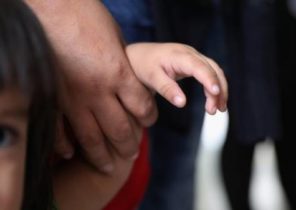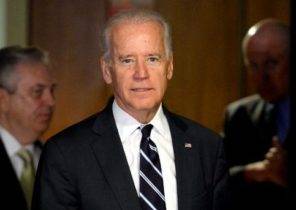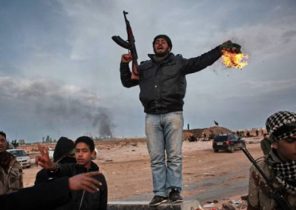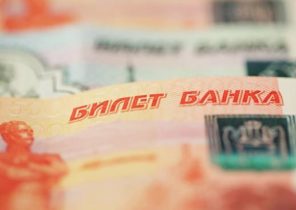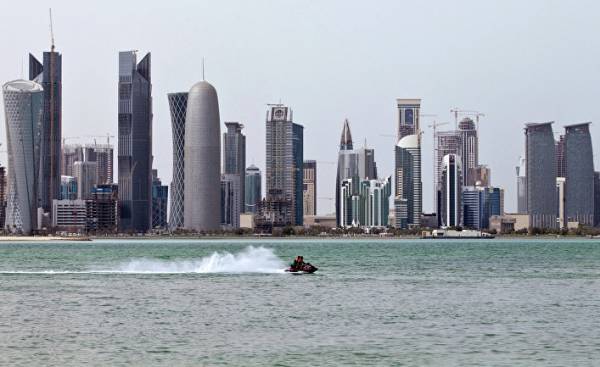
Qatar has successfully established a reputation as an ideal Islamic state, feeding their way of life and system of government as a model for the entire Middle East. Most of the inhabitants of the region see in Doha is rich and neutral area of the Islamic world, but few realize the true extent of Qatari influence on the development of the Middle East.
The current middle East similar to that described by Hobbes, the war of “all against all”. In addition to the confrontation between Sunnis and Shiites, the region suffers from a variety of different types of conflicts and the number of warring parties in some of them reaches several thousands, such as in Syria. This disturbing background is the small Emirate of Qatar, not only for its prosperity but also the scope of international ambitions and influence in the region, which is clearly disproportionate to its modest size.
Objectivity and interests
For several decades, from the Bedouin village of pearl divers, Qatar has become one of the major political centers of the Middle East. The success story of the Emirate — is a unique example in world history that directly contradicts dominant in the study of international relations theory of realism.
Qatar has neither the military power nor the human resources necessary to significantly influence the processes in the region with hard power. However, skilful work on its own public image, as well as the development of soft-power more than make up for these shortcomings.
It has made Qatar one of the key initiators of the turmoil of the “Arab spring” that changed the course of history of the Middle East for many decades to come. Now with the view of Doha in the Arab world are considered no less than with such traditional regional power like Egypt and stability in some countries of the Middle East depends on the state of relations with the leadership of the tiny Emirate.
First success of strategy of foreign policy of Qatar is the result of a deep understanding of the occurring in the region. In the chaos and inter-communal conflict, clashes between Islamists of all stripes and flags, against secular regimes with Islamist and so on Qatari authorities have chosen time and a niche to grow your influence.
The transition of the Emirate to an extremely active foreign policy has largely been the result of fallen on the country of wealth in the form of huge reserves of natural gas, constituting about 15% of the world. It fanned the ambitions of local leadership, which sees itself as the true followers of the ideas of Wahhabism and her aim is to bring this knowledge to the whole region.
Foreign policy strategy of Qatar was formed during the reign of the previous Emir, Hamad bin Khalifa al-Thani, laid the foundations of Qatari soft power. In 1990-ies he decided to take advantage of the opportunities opened up rich Emirate dismal state of the region. In 1996, a year after coming to power, the Emir Hamad bin Khalifa ordered the creation of a television station “al Jazeera”, which has since become the main source of objective information on the middle East.
Indicative assessment of the impact of the Qatari television channel were the words of former President of Egypt Hosni Mubarak. In 2001, he visited the headquarters of the “al-Jazeera” in Doha, and then asked the Minister of communications of Safwat El-Sherif, such as “matchbox” is able to create so many problems. Indeed, ten years later, the TV station played an important role in supporting the Egyptian revolution and the overthrow of the Mubarak regime.
Editorial policy “al-Jazeera”, in addition to the Declaration of independence, based on the following principles: support for democracy promotion in the middle East, opposition to the rule of an authoritarian and secular leaders as Hosni Mubarak and Bashar al-Assad, and protection of the rights of Muslims around the world.
A sharp critic of many middle Eastern rulers in the conditions of strict censorship made the Qatari channel as the main mouthpiece of the opposition support the middle East and provided a special popularity among Arab youth. As a result, from the studios of “al-Jazeera” broadcast crucial messages about the beginning and development of the protests of the “Arab spring”.
In the time reporting channel is actively discussing the corruption of the Gaddafi regime in Libya, the repression of the Assad regime in Syria, the victory of democracy in Tahrir in Egypt. The plots were made at the highest level, they worked with leading experts from around the region, as well as with Western TV channels.
The broadcasting accessibility, simplicity and quality of information transfer, as well as objectivity are key to the popularity of “al-Jazeera”. Never before in the middle East did not exist, the regional media, which in quality does not lag behind the Western analogues, is broadcasting in Arabic, feels, and adjusts to the mood of the population of the region and thus enjoys almost unlimited financial resources of the Qatari government.
The main achievement of the Qatari leadership is the fact that they managed to successfully distance itself from its TV channel. As a result, “al-Jazeera” is perceived in the region as the only objective source of information — is not associated with the policy of Qatar — pan-Arab sometimes, but in General uphold the values of the Muslim world.
The interests of Qatar TV channel how to skillfully and covertly. For example, in recent years Doha has provided asylum to former Prime Minister of Syria Riyad Hijab and former Minister of foreign policy of Libya Moussa at while. Subsequently, the policies from the studios of “al Jazeera” actively encouraged to fight against those that expelled their regimes, emphasizing the role of the Emirate in protecting and supporting the “fighters for justice”.
“Al-Jazeera” successfully maintains its reputation for objective media, including their esters of the opinions of independent experts and the reports about the various events and problems of the Middle East, from drought to the oppression of women and poverty. At the same time the agenda, “al-Jazeera” covertly incorporates elements of the foreign policy of Qatar, which the authorities are seeking to position the Emirate as an island of peace and prosperity in the turbulent Islamic world.
Center and sample
“Al-Jazeera” — important but not the only tool of soft power, Qatar, with which the Emirate creates a special reputation in the middle East. In conditions of permanent poverty, underdevelopment, corruption and lack of social mobility almost everywhere in the region the thriving and incredibly rich Qatar is pictured as a Paradise on earth.
Huge gas reserves guarantee the residents of Qatar one of the highest living standards in the world. Arab migrant workers here for a year can earn several times more than at home in a decade. The Doha appears to them as a rich centre, where in the first place, in contrast to the “cultureless” UAE (Dubai and Abu Dhabi) are true Islamic values.
Qatar is trying to present himself as the perfect Islamic society, center of revival of Arab and Islamic culture, where able to successfully combine modernity, aspects of Islamic socialism — a society of social justice, freedom and equality — as well as the ideas of Muhammad Ibn al-Wahhab, founder of Wahhabism.
The government of Qatar do not spare money for the construction of objects of regional importance. For example, in Doha, was opened the Museum of Islamic art, one of the largest in the world, as well as the “cultural Village of Qatar”, combining the values of the Bedouin heritage and modern society.
In a landmark University of Hamad bin Khalifa (HBKU) recently began working as a Grand mosque called “the Center of Islamic revival and moderation name of Yusuf al-Qaradawi”. Al-Qaradawi is one of the more radical trends in Islam, it is famous for its harsh fatwas and called Russia an “enemy of Islam number 1”.
Education is another important tool of soft power, Qatar, which promotes its interests by the means of folk diplomacy. The government of the Emirate annually allocate significant funds for educational grants for foreign students at Qatari universities.
The previous Emir, Hamad bin Khalifa al-Thani and his wife Sheikha Mozah bint Nasser actively worked to promote Western education and progressive values. This has attracted representation of the leading Western universities, including Cornell University, Georgetown University and some others.
The current Emir, Tamim bin Hamad al-Thani, even though he wouldn’t completely abandon the ideas of their parents, but has significantly cut funding for previous projects, emphasis on conservative teaching in Arabic.
A system where foreign students are studying in Qatari universities, similar to the Soviet. The local universities selected the talented Arab youth, which has no money for training abroad and the possibilities of social growth at home. They provide grants for education, scholarships, interest-free and perpetual loan on the basis of Islamic Finance.
As a result, plunged into a perfect Islamic society, received a local education and support, many of the students, on returning home, keep a very positive attitude towards Qatar, and the relationship with the Emirate.
This strategy has begun to work about 10 years ago, and tracking its results is still difficult. Graduates of Qatari universities work in all corners of the Arab world in the ministries and major companies, but is yet too young.
In a similar way Qatar operates in support of Islamic education. Qatar — one of the main sponsors of the construction of madrasa and various Islamic centers in the middle East. The doctrine of Wahhabism is the basis of the ideology of the Emirate, and therefore teaching in these centers is appropriate. Separately, prepare religious leaders to work in these centres.
In addition to supporting education in Qatar is also positioning itself as a society of social utopia. Despite the strict rules of Sharia in the Emirate one of the highest levels of education among women. In separate campuses of Hamad bin Khalifa, according to various estimates, up to 70% of the students are women. In the largest University of the country, Qatar University, female students at about 50%. The birth rate in Qatar dropped from seven children per woman in 1960 to two in 2015.
Doha is also positioning itself as a regional center of tolerance. According to various sources, about 20% of the population are Shiites, which are perfectly integrated in the Qatari society. Many Shiites come from neighbouring Iran, but they actively support the Qatari authorities. The native population of Qatar is about 200 thousand people, foreign workers in the Emirate in ten times more.
Finally, Doha appears as the centre of Islamic and pan-Arab unity. The Emirate is widely known for the attempts to reconcile Fatah and Hamas for a joint struggle against Israel. Qatar has become a key platform for communication and coordination of the anti-Assad forces in Syria, as well as representatives of the “Muslim Brothers” from all over the region.
Although Qatar is actively funding various factions throughout the region, the Emirate is perceived in the middle East as a neutral country. According to the center for public opinion research, Zogby Research, despite direct Qatari support for the armed opposition in Syria and his participation in the bombing of Libya, only a few in the Arab world believe that Qatar accepts any responsibility for the current state of Affairs in these countries.
As a result, the Qatar has successfully established a reputation as an ideal Islamic state, feeding their way of life and system of government as a model for the entire Middle East. Most of the inhabitants of the region see in Doha is rich and neutral area of the Islamic world, but few realize the true extent of Qatari influence on the development of the Middle East.

